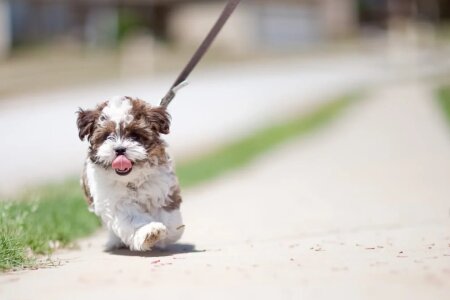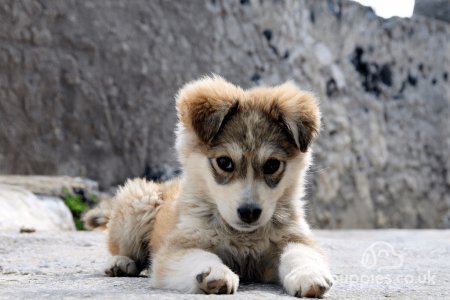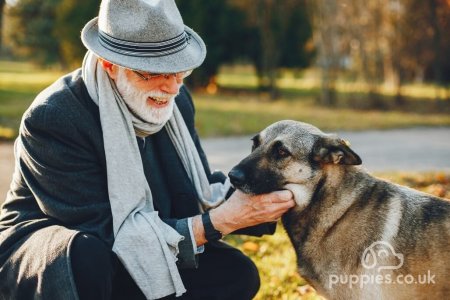11 Best Dog Breeds For Full-Time Workers
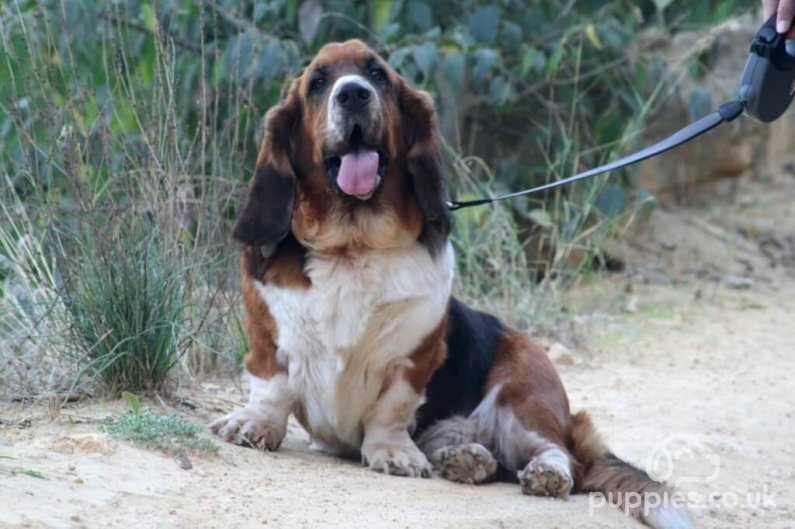
While most dog breeds don’t like to be left alone, some are happy to entertain themselves while their owners are at work. These independent breeds make it possible for full-time workers to enjoy the love and companionship of a happy, healthy dog.
Below we’ve listed 11 low-maintenance dog breeds that can adapt to most lifestyles with ease. These dogs are well suited to living with owners who have busier schedules.
1. Basset Hound
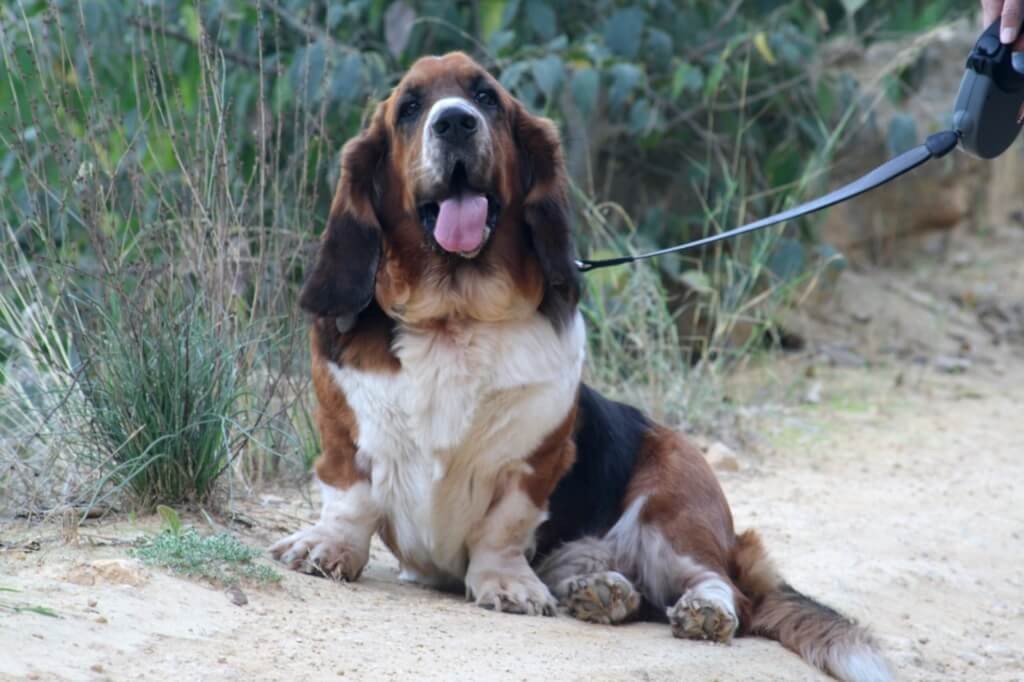
Attribution-ShareAlike 2.0 Generic (CC BY-SA 2.0) - Carlos Alejo
Basset Hounds are an excellent choice for owners that want a calm and quiet dog. These loveable pups are known for their laid-back natures. Basset Hounds are one of the best dog breeds for full-time workers as they don’t mind spending time alone and are more than happy to relax at home while you’re out.
Height: 28-38cm
Size: Medium
Character: Calm, stubborn, docile
Life Expectancy: 10-12 years
2. Bedlington Terrier
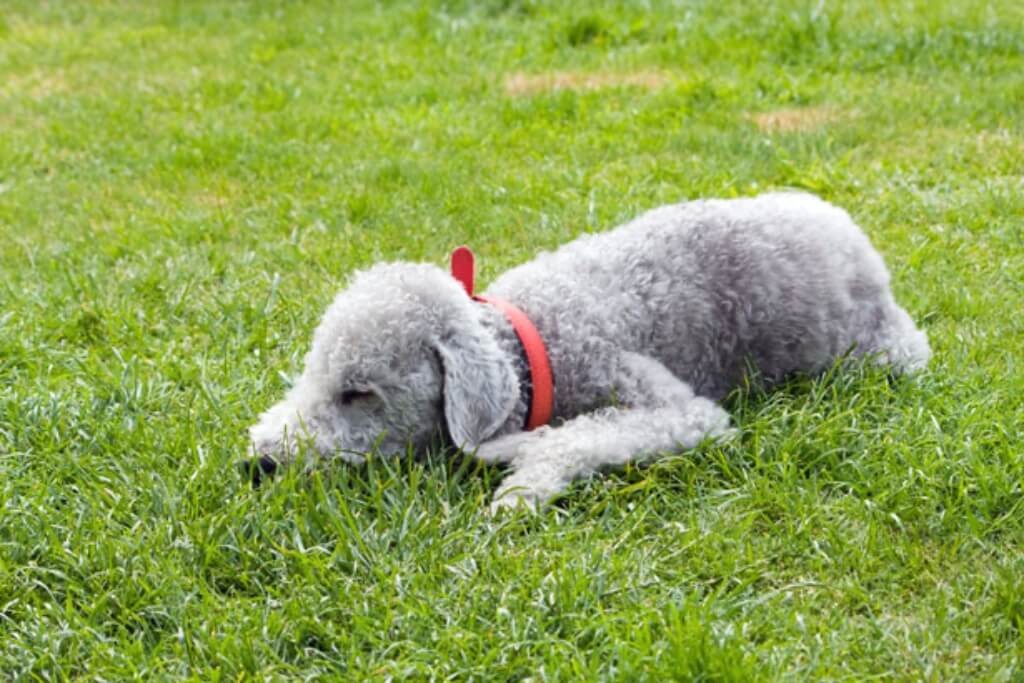
CC0 1.0 Universal (CC0 1.0) Public Domain Dedication - Annemarie Sutterfield
Bedlington Terriers are small but confident dogs that don’t mind lounging at home during the day. These charming dogs are fairly active so they will be ready to play and go for a walk when you get home. Bedlington Terriers are affectionate and very adaptable so are popular family pets that can fit in well with most lifestyles.
Height: 38-44cm
Size: Small
Character: Adaptable, gentle, confident
Life Expectancy: 12-14 years
3. French Bulldog

Attribution 2.5 Generic (CC BY 2.5) - Frogdogz
The French Bulldog is a charming, easy-going companion that is well-suited to city life. These small dogs are great for apartment living and they are happy to spend time alone. Once the work day is over, a French Bulldog will always be happy to see you and they love to play and entertain their owners- they also only need short walks which is good for busy owners.
Height: 27-30cm
Size: Small
Character: Friendly, laid-back, quiet
Life Expectancy: 10-12 years
4. Italian Greyhound
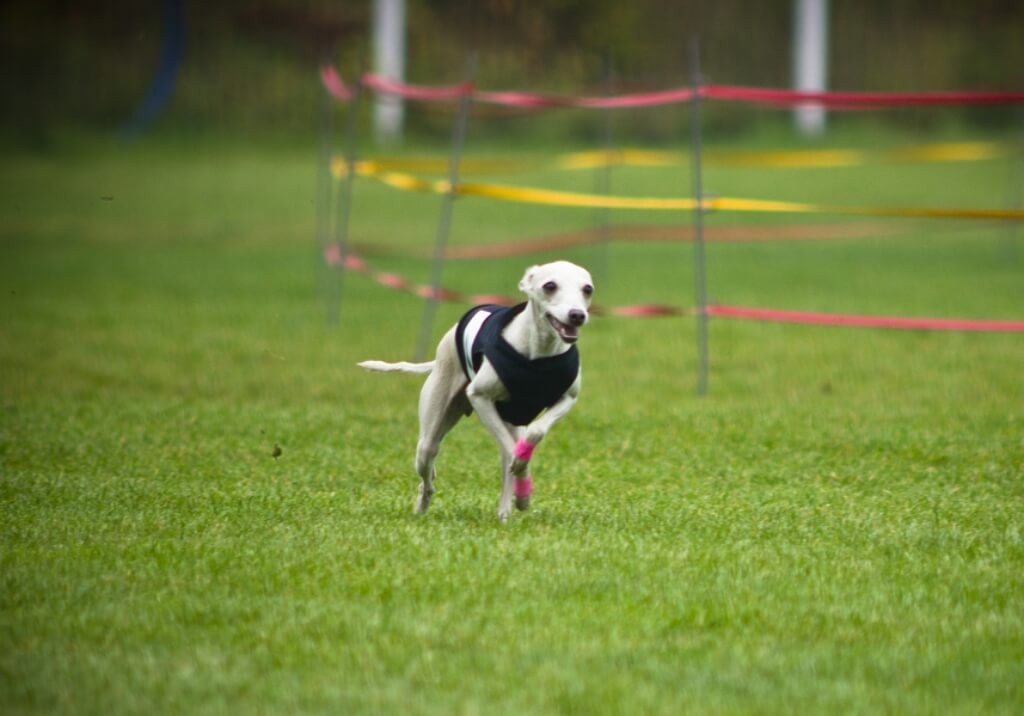
Attribution-ShareAlike 4.0 International (CC BY-SA 4.0) - Kleree
Italian Greyhounds are charming little dogs that boast sweet natures. Italian Greyhounds have independent attitudes and are often happy to relax on the back of the sofa in between their bursts of playful energy.
Height: 30-38cm
Size: Small
Character: Adaptable, quiet, agile
Life Expectancy: 12-14 years
5. Bernese Mountain Dog
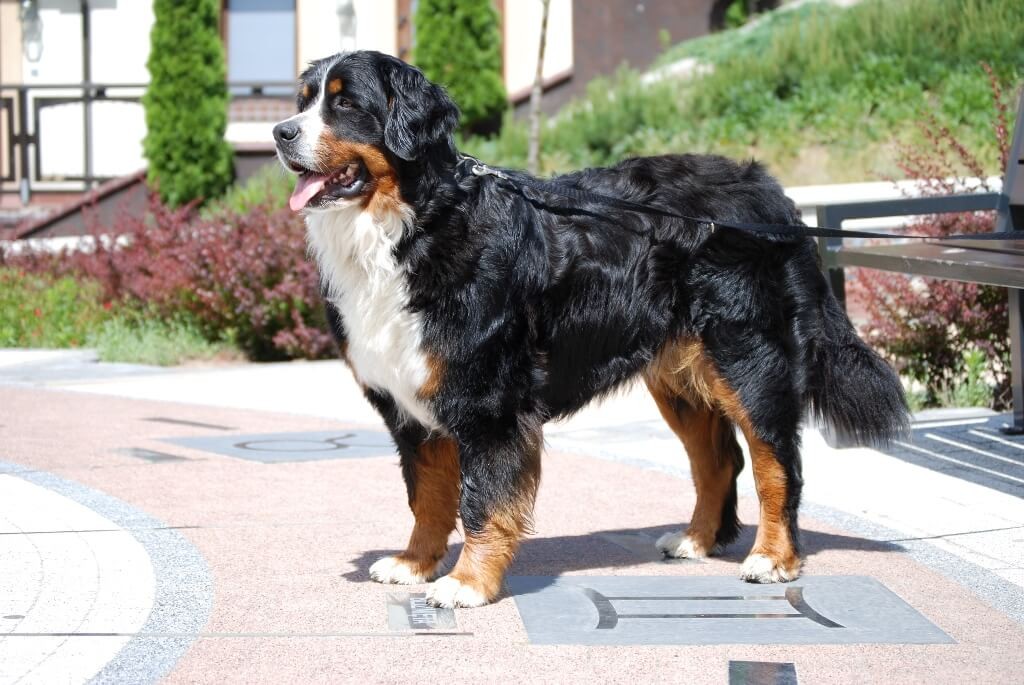
Attribution-ShareAlike 4.0 International (CC BY-SA 4.0) - AnetaAp
For those that love large breeds, the Bernese Mountain Dog is a loyal, friendly, and laid-back breed. These dogs are quiet and relaxed when home alone but will be playful and energetic when by your side. Bernese Mountain Dogs are people-orientated but can handle a few hours alone as long as they have enough mental and physical stimulation each day.
Height: 58-70cm
Size: Large
Character: Easy-going, loyal, calm
Life Expectancy: 8-10 years
6. Shar Pei

Attribution-ShareAlike 3.0 Unported (CC BY-SA 3.0) - Szakalová Edina
The Shar Pei breed is known for being independent and happy to spend time alone while their owners are at work. These dogs are loyal and do enjoy time with their family so you can expect a warm welcome and some enthusiastic play when you return home. Shar Peis are medium-sized dogs but they don’t need a lot of space so they are a good choice for smaller homes too.
Height: 46-51cm
Size: Medium
Character: Independent, stubborn, calm
Life Expectancy: 12-14 years
7. Boston Terrier
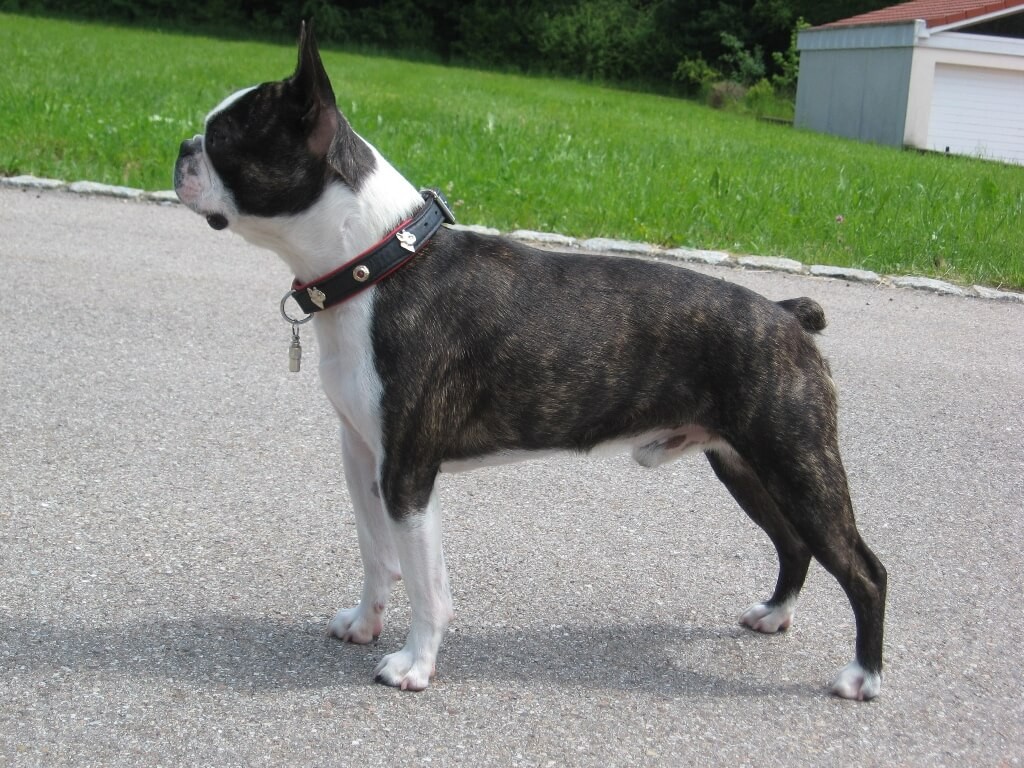
Attribution 3.0 Unported (CC BY 3.0) - Andreas Schlaugat
If you’re looking for a lively and people-loving dog then the Boston Terrier is a good choice. These enthusiastic little dogs can be quite independent and can handle being left alone while their owners are at work. Boston Terriers are popular dogs thanks to their charm and eagerness to please.
Height: 38-43cm
Size: Small
Character: Lively, loving, intelligent
Life Expectancy: 12-14 years
8. Dachshund
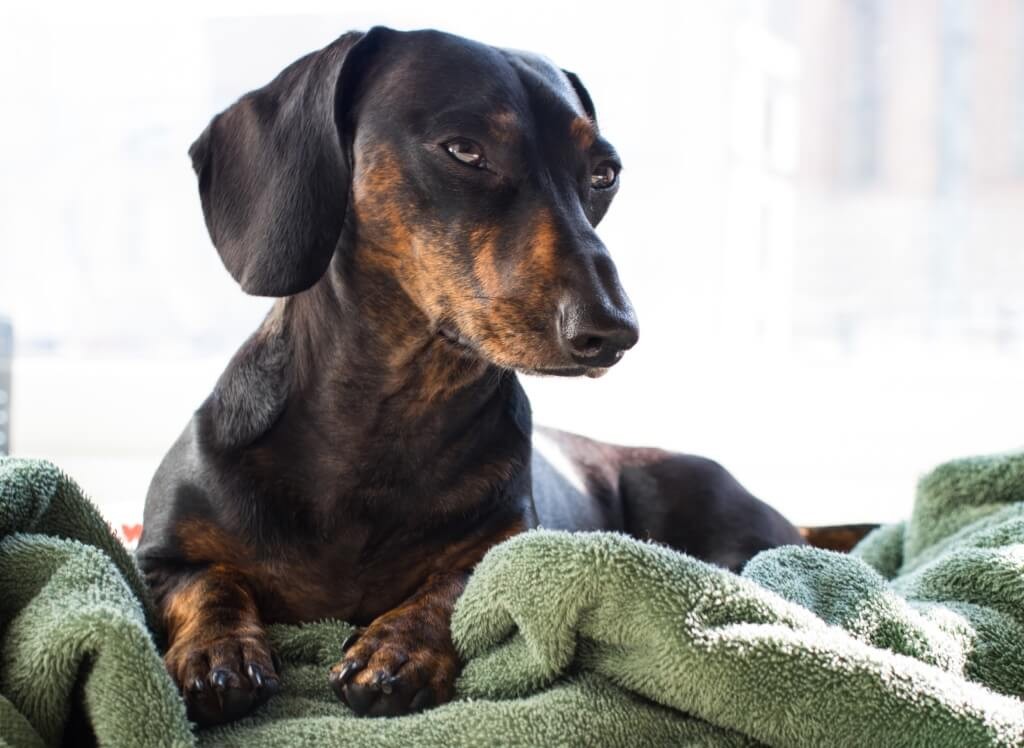
Attribution-ShareAlike 4.0 International (CC BY-SA 4.0) - Misspells wrods
Dachshunds are charming dogs that fit into most lifestyles. These small dogs are energetic and playful so they like to be kept entertained but if they’ve had a walk and a play in the morning they are happy to relax until you return home. Dachshunds will always greet you with enthusiasm at the door.
Height: 20-27cm
Size: Small
Character: Outgoing, intelligent, loyal
Life Expectancy: 12-14 years
9. Miniature Schnauzer
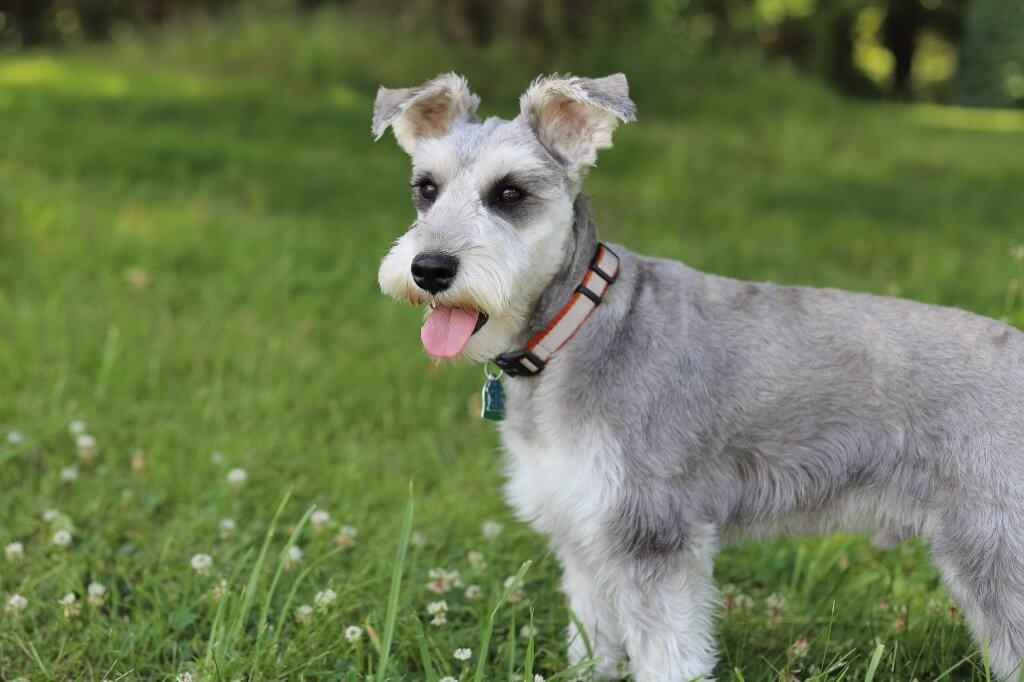 Attribution-ShareAlike 4.0 International (CC BY-SA 4.0) - Psiberfunk
Attribution-ShareAlike 4.0 International (CC BY-SA 4.0) - Psiberfunk
Miniature Schnauzers are friendly, affectionate, and low maintenance. These small dogs enjoy daily walks but they are not overly active so have no problem relaxing when home alone. Miniature Schnauzers are highly adaptable and are always eager to please, making them fantastic companions.
Height: 33-36cm
Size: Small
Character: Cheeky, intelligent, adaptable
Life Expectancy: 12-14 years
10. Akita

CC0 1.0 Universal (CC0 1.0) Public Domain Dedication - Monika Stawowy
Akitas are large dogs that are known for being independent and, at times, stubborn. These dogs tend to keep to themselves and their ability to tolerate time alone makes them a great dog breed for people with busy schedules. When around their family, Akitas are loyal, playful, and affectionate - they also make excellent watchdogs.
Height: 58-70cm
Size: Large
Character: Quiet, intelligent, stubborn
Life Expectancy: 10-12 years
11. Chow Chow
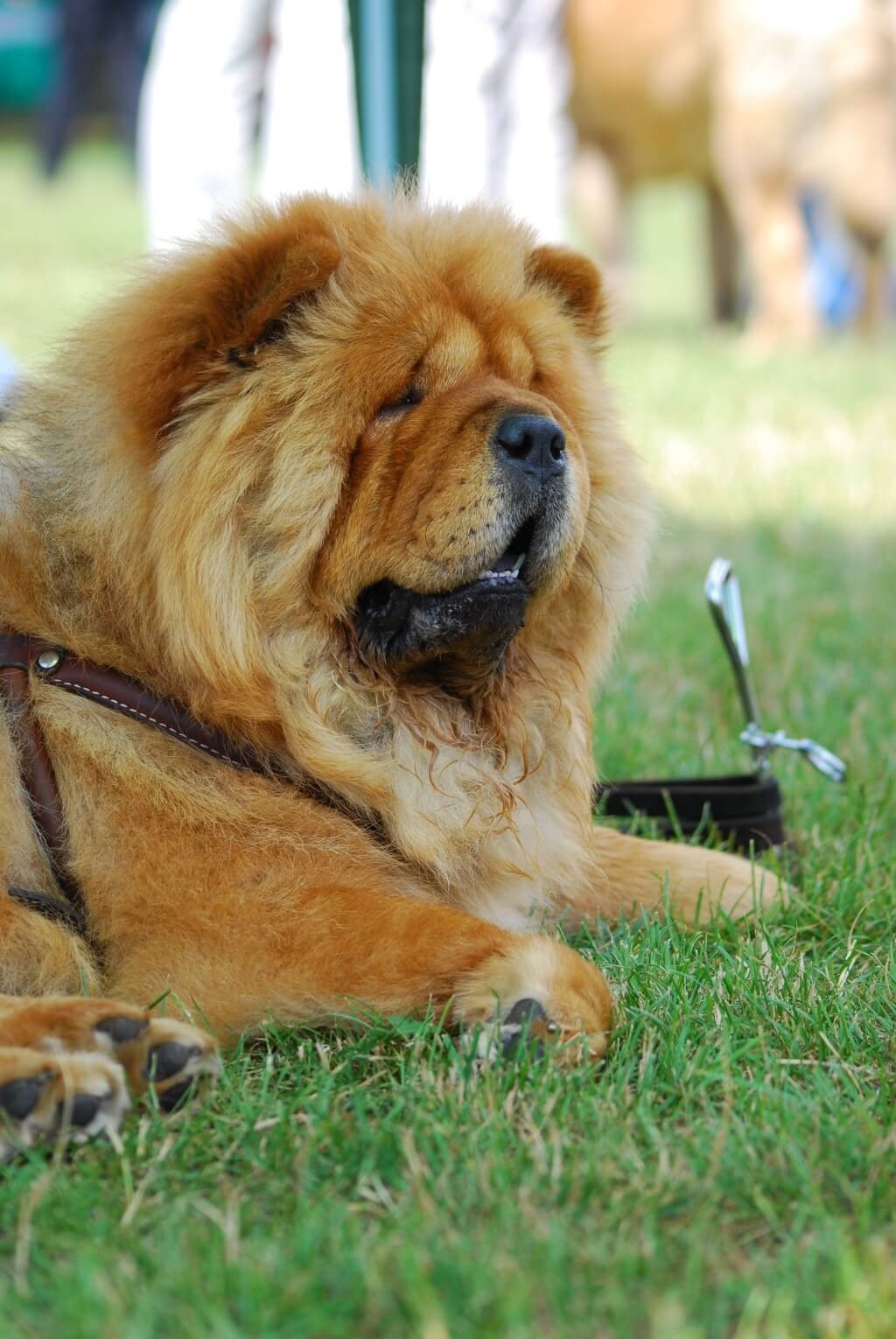
Attribution-ShareAlike 3.0 Unported (CC BY-SA 3.0) - Lilly M
Chow Chows are instantly recognisable with their blue tongues and fluffy lion-like mane, they are also well known for their aloof and independent natures. These quiet dogs like to keep to themselves, they are not a needy breed and don’t mind staying at home on their own while their owners go to work. If you want a cuddly dog, a Chow Chow probably isn’t the right breed for you.
Height: 43-51cm
Size: Large
Character: Aloof, intelligent, alert
Life Expectancy: 10-12 years
Leaving Dogs Alone For A Long Time
The amount of time you can leave a dog alone depends on its age, breed, and behaviour. With training, a dog can get used to spending short periods of time alone. The time alone can gradually be increased as the dog matures.
Remember that puppies need to regularly go to the bathroom as they cannot hold their bladders for as long as adult dogs. A puppy should not be left alone for more than a couple of hours. As they mature, this time alone can be extended up to around 4 hours.
When leaving a dog alone, consider improving their experience by:
Providing treat puzzle toys or other mentally stimulating toys to keep your dog busy while home alone
Putting the radio or TV on for them
Hiring a dog walker or taking them to doggy daycare
Crate training them
Leaving A Dog Alone For 12 Hours
12 hours is too long to leave a dog on its own so this should only happen in exceptional circumstances. If you are not going to be home for more than 5 hours it is best to get someone to check on your pet and take them for a walk or let them out into the garden.
Being left alone for 12 hours should not be a regular occurrence as dogs cannot comfortably hold their bladder for this long. Dogs left alone for a long period of time are likely to get stressed and destructive, they will need someone checking in on them and letting them outside to break up the time and ensure they have the chance to do their business outside.
Leaving A Dog Alone Overnight
Although not ideal, there are times when you may have to leave your dog overnight. Some dogs are okay if left alone overnight but it depends on the dog, their temperament and behaviour, as well as your usual nighttime routine and the length of time you are going to be away.
If you know you are going to leave your dog overnight you can take steps to prepare and ensure your dog is okay. This includes; feeding your dog before you go and putting fresh water out for them, taking them for a walk and ensuring they have the chance to urinate and defecate before you leave. Also, make sure your dog has toys, treat puzzles, and a cosy bed.
Alternatives to leaving your dog alone overnight include leaving them with friends or family, putting them into kennels, or using a pet sitting service.
Leaving A Dog In A Crate
Crate training is an excellent way to get your dog used to being left alone. The crate provides a safe environment where your dog can learn to relax and you can have peace of mind knowing your dog is not going to get into any trouble while they are home alone. It takes time to get your dog used to spending time in the crate, start with short periods and build this up.
Put food, water, a bed/ blanket and a few toys in the crate with your dog so they have everything they need while you’re away.
Dogs And Loneliness
Dogs are social animals and they love to be with their family. Leaving a dog alone for any amount of time requires training and patience. They need to get used to being away from you and the best way to do this is to get them comfortable with being alone for short periods of time and then build up from this.
Many dog breeds are prone to suffering from separation anxiety which is when the dog becomes very upset and anxious when they are left alone. Dogs with separation anxiety often become visibly distressed as their owners prepare to leave.
Signs of separation anxiety can include
Crying
Whining
Urinating indoors
Hiding
Excessive panting
Licking
Trembling
Destructive behaviours such as chewing or digging
Not eating when their owner is away
Separation anxiety can be reduced with training but some owners find the only way to get around the issue is to get a pet sitter or take their dog to a daycare where they won’t be alone.
Getting A Puppy
Choosing a dog breed that suits your lifestyle is essential to having a happy, healthy dog. If you’ve found the perfect breed for you, use Puppies to ensure your newest family member comes from a reputable breeder.
Before your puppy joins your family, it is a good idea to read our puppy health guide. And, if you are worried about the cost of taking care of your dog, read our report for practical tips on how to get support and reduce your monthly expenses.






